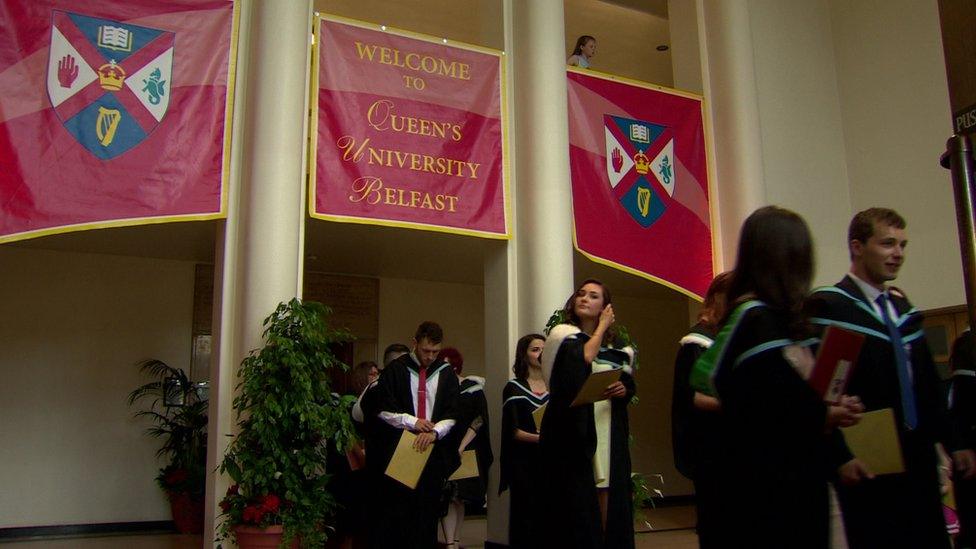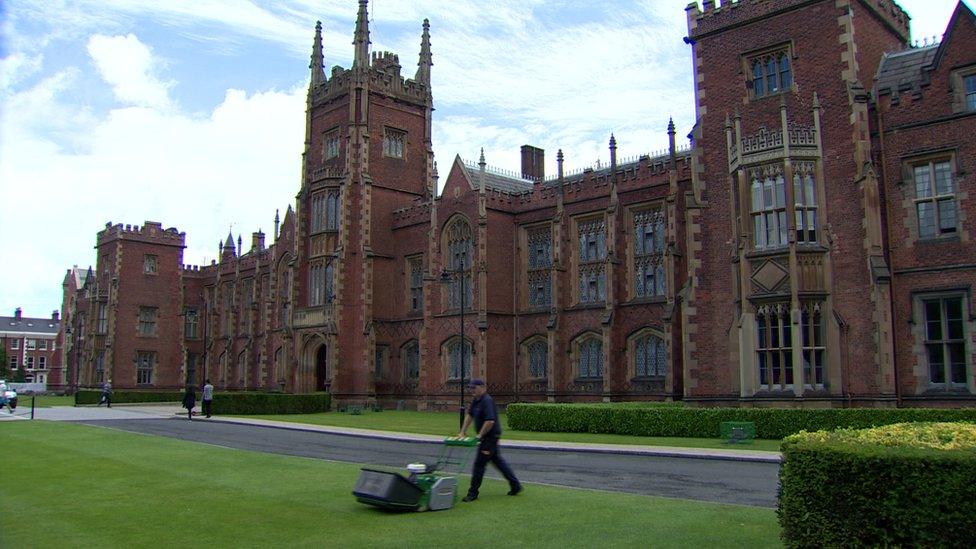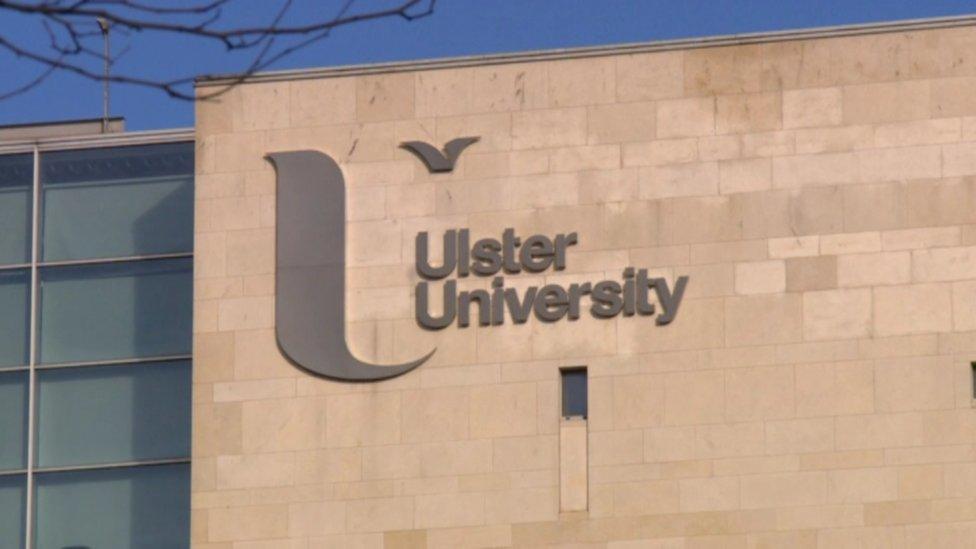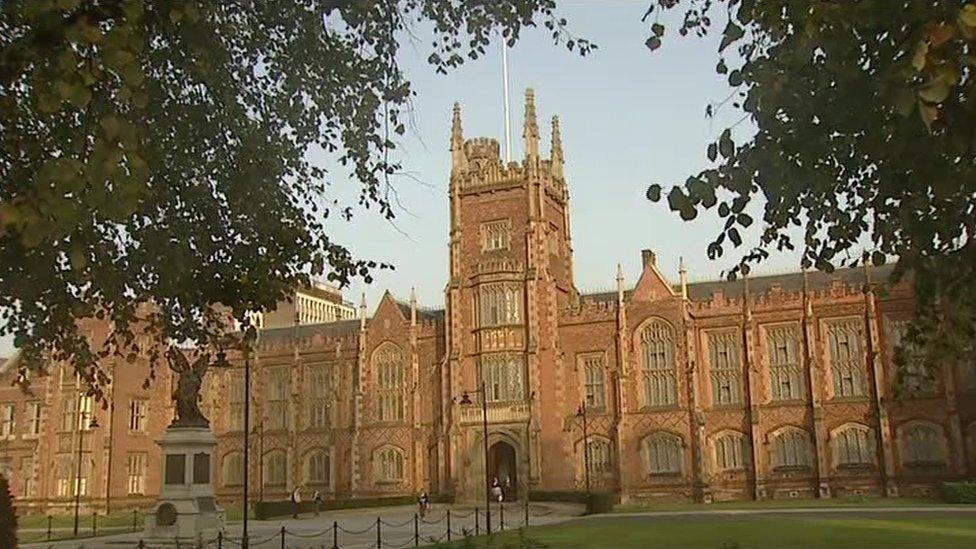Rise in number of first-class degrees by NI students
- Published
- comments

The proportion of firsts awarded to students in Northern Ireland has trebled since 20 years ago
Northern Ireland's universities award top degree grades to almost a quarter of their students, an increase of more than 50% since 2011-12.
The proportion of students achieving first-class degrees in 2015-16 was 23%, compared to fewer than one in six five years ago.
The figures were released by the Higher Education Statistics Agency (HESA).
They show in 2015-16, 24% of students at Queen's University in Belfast and 21% at Ulster University got firsts.
The proportion of firsts awarded has almost trebled since 20 years ago, when only 8% of students at Queen's University and Ulster University achieved them.
Sharp rise
The 2015-16 academic year was also the first in which it was more common for Northern Ireland students to be awarded a first-class degree than a lower second (2:2) grade.
Meanwhile, 60 out of 210 graduates at St Mary's University College (29%) and 65 out of 270 graduates at Stranmillis University College (24%), both in Belfast, were awarded firsts.

Almost a quarter of Queen's University undergraduates got first-class honours in 2015-16
That equated to 23% of graduates overall, a sharp rise since five years ago (2011-12), when only 15% of students in Northern Ireland achieved firsts.
By contrast, just over one in five students was awarded a lower second (2:2) degree in Northern Ireland in 2015-16.
The most common degree, however, is still an upper second (2:1).
About half of graduates - 4720 out of 9475 - in Northern Ireland achieved that grade in 2015-16.
'Chronic grade inflation'
According to a UK-wide survey of the HESA data carried out by the Press Association, there has been a dramatic increase in the number of firsts awarded at some universities.
The University of Surrey awarded a first-class degree to 41% of students last year, more than doubling the proportion five years ago.
And firsts awarded at the University of East Anglia almost trebled to 37%.

Ulster University awarded firsts to just over a fifth of its students in the previous academic year
Overall, 24% of students at the 148 UK universities were awarded first-class degrees in 2015-16.
Some critics, such as professor of education at Buckingham University Alan Smithers, have called it "chronic grade inflation".
'Job opportunities advantage'
However, there have also been arguments that rising degree grades reflect the improved A-level grades of those entering university and a more focused attention to studying.
The figures from HESA go back only as far as 1994, when only 7% of all UK graduates were awarded first-class degrees.
They show the proportion of firsts at UK universities has more than trebled in the past two decades.
Universities are their own degree-awarding bodies, so can decide their own levels of degree grades.
First-class degrees will be an advantage for future job opportunities and some companies recruit only from graduates with an upper second or above.
Some graduate employers have previously called for more detailed degree grades.
- Published8 June 2017

- Published8 June 2017
